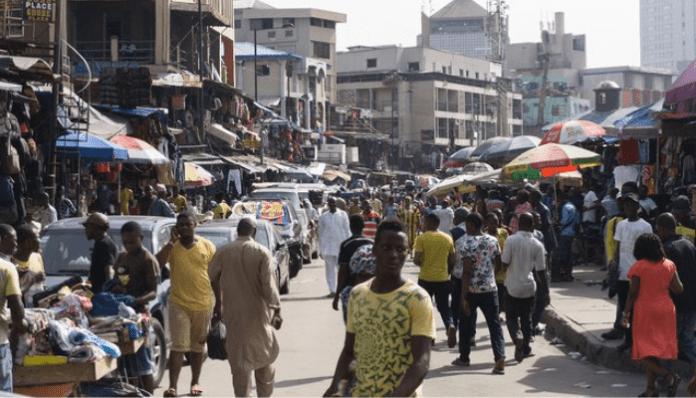Unemployment in Nigeria has emerged as a critical issue, significantly affecting the nation’s economic stability and social cohesion. With a youthful population of over 60% under the age of 25, the country faces immense pressure to generate sufficient job opportunities.
In 2023, the National Bureau of Statistics (NBS) reported an overall unemployment rate of 5.4%, but the reality is much more complex, with stark variations across different demographics and regions. Youth unemployment, in particular, is rampant, often leading to widespread underemployment and contributing to rising levels of frustration and discontent among the young populace.
Top 10 Nigerian States with the Highest Unemployment Rates
- Abia State (18.7%)
Abia State has the highest unemployment rate in Nigeria at 18.7%, affecting around 362,000 individuals. Despite being known for its rich cultural heritage and small-scale industries, the state struggles with limited job opportunities. Many residents rely on informal jobs, which offer little security or benefits, leading to increased poverty levels. Economic instability and inadequate infrastructure further exacerbate the situation. - FCT (Abuja) (14.1%)
The Federal Capital Territory (FCT) has an unemployment rate of 14.1%, impacting approximately 150,000 people. As the political and administrative hub of Nigeria, Abuja faces challenges like high living costs and insufficient job creation in the formal sector. A significant number of residents engage in informal employment, indicating a struggle to secure stable livelihoods, particularly among youth and new graduates. - Rivers State (13.4%)
Rivers State, rich in oil resources, has a paradoxical unemployment rate of 13.4%, affecting about 408,000 individuals. The oil industry, while lucrative, has not translated into sufficient local job creation. Many residents turn to informal employment due to a lack of opportunities in the formal sector. This reliance on informal work highlights economic vulnerabilities and the need for diversified economic development
READ ALSO: 8 Small Things That Tell You a Lot About Someone
4. Gombe State (11.2%)
Gombe State faces an unemployment rate of 11.2%, impacting over 148,000 residents. Primarily an agricultural state, Gombe has potential for growth but suffers from limited access to resources and markets. The high unemployment rate reflects a need for improved agricultural practices and investment in other sectors. Addressing these challenges is crucial for enhancing job opportunities and economic stability.
5. Imo State (10.9%)
Imo State has an unemployment rate of 10.9%, with around 241,000 individuals unemployed. Known for its rich natural resources, Imo still struggles to provide enough formal job opportunities. The high number of people in informal employment, estimated at nearly 1.89 million, indicates a reliance on unstable jobs. The state needs to develop its economic infrastructure and create policies to boost job creation.READ ALSO:
6. Ogun State (8.8%)
Ogun State reports an unemployment rate of 8.8%, translating to over 260,000 unemployed individuals. As a gateway state with diverse industries, Ogun has potential for job creation. However, the challenges of inadequate infrastructure and a lack of investment in skills training hinder progress. Many residents find themselves in informal employment, which underscores the need for targeted job creation strategies.
7. Delta State (8.2%)
Delta State’s unemployment rate stands at 8.2%, affecting around 178,000 individuals. Despite its oil wealth, Delta faces significant economic challenges, particularly in job creation for its youth. Many residents engage in informal employment, with around 1.82 million people in that sector. Addressing the mismatch between available skills and job opportunities is critical for improving employment prospects in the state.
6. Kano State (7.6%)
Kano State has an unemployment rate of 7.6%, impacting approximately 477,000 people. As a major commercial center, Kano’s economy relies heavily on informal and self-employment, with nearly 5 million individuals engaged in these sectors. Despite its bustling markets, the state faces challenges in providing sufficient formal job opportunities. Investment in education and vocational training is essential to harness the potential of its workforce.
9. Plateau State (7.4%)
Plateau State’s unemployment rate is 7.4%, affecting around 151,000 residents. The state is known for its agricultural potential, yet many citizens remain unemployed due to a lack of infrastructure and investment in rural development. The reliance on informal employment indicates economic instability, and addressing these gaps is essential for improving job creation and overall economic health in the region.
10. Borno State (7.3%)
Borno State, grappling with the impacts of conflict and insecurity, has an unemployment rate of 7.3%, affecting over 144,000 individuals. The ongoing crisis has severely disrupted economic activities, limiting job creation and access to resources.
Many residents turn to informal jobs for survival, but these often lack stability and benefits. Sustainable peace and investment in infrastructure are crucial for revitalizing the state’s economy and creating job opportunities.

